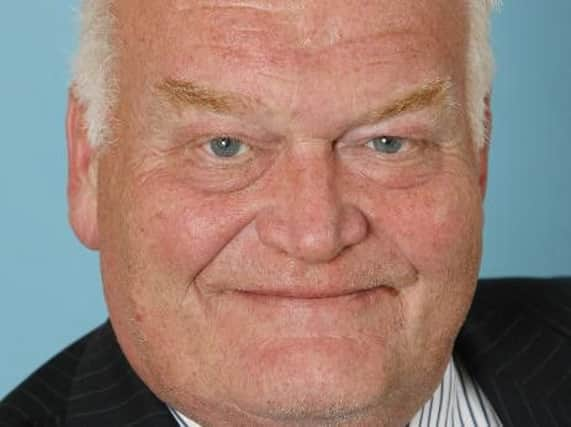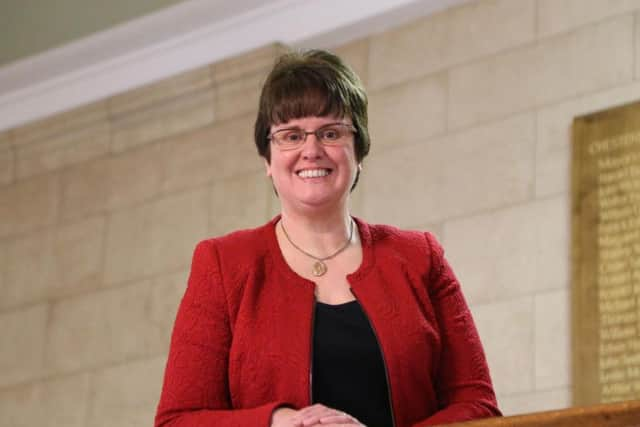Leaders' concerns over super-council plans


But they have said they are not against the idea – providing their own authorities are not abolished.
The proposed East Midlands Combined Authority would see the county councils of Derbyshire, Nottinghamshire, Leicestershire and Lincolnshire – all led by the Conservatives – working together with the city councils of Derby, Nottingham and Leicester – all led by Labour – as one “strategic alliance”.
Advertisement
Hide AdAdvertisement
Hide AdThese authorities hope that by working together they can gain a hefty devolution deal from central government – which could see them handed more control over certain services and standing a better chance of winning hundreds of millions of pounds in aid.


This “super-council”, it is hoped, will help combat the “weight and clout” of the West Midlands Combined Authority, and its Mayor Andy Street.
Initial talks seem to be hinging on the required investment into transport and infrastructure throughout the region.
However, there has also been a mention that any combined authority or devolution deal could also include a reorganisation of the local government structure of each county.
Advertisement
Hide AdAdvertisement
Hide AdThis could mean the removal of some or all district and borough councils.
Out of the eight district and borough councils in Derbyshire, just two wished to present a view on the fresh combined authority proposals, with the majority choosing not to comment.
Cllr Lewis Rose, the Conservative leader of Derbyshire Dales District Council, said: “I was surprised to read about it first in the press and to be left out of the first discussions, a feeling which is felt by all of my fellow district and borough council leaders.
“I am led to believe that the plans would lead to a significant amount more investment in the region and more money coming in for councils.”
Advertisement
Hide AdAdvertisement
Hide AdPrior to the most recent talks, Derby and Nottingham had held discussions of their own about joining forces.
Mr Rose said: “We had been very supportive of the previous Derbyshire and Nottinghamshire combined authority plans and we would support this too.
“But not local government reorganisation – we would strongly resist this as a council.
“If we don’t have to have a mayor and we can lever in more funding for the area, then we would continue to pledge our support.”
Advertisement
Hide AdAdvertisement
Hide AdMeanwhile, Councillor Tricia Gilby, Labour leader of Chesterfield Borough Council, was also “disappointed” at being left out of the initial talks.
Cllr Gilby said: “I fully understand and support conversations about how the East Midlands can match the growing influence of the West Midlands’ elected mayor. It is important that our region has a greater economic voice.
“However, it is disappointing that district and borough council leaders have not been part of these discussions when Chesterfield, and other districts and borough councils, are working hard to grow their economies and create good quality jobs for local people.
“As ever with these things, the devil is in the detail. I have not seen anything reliable to suggest local government reorganisation is on the cards in Derbyshire.
Advertisement
Hide AdAdvertisement
Hide Ad“As leader of Chesterfield Borough Council my priority is, as always, to do what I believe to be in the best interests of the borough’s residents and businesses.”
Back in 2015, devolution talks had involved merging a combined authority from Derbyshire and Nottinghamshire’s county, city and district and borough councils.
It was the proviso that the new East Midlands authority would have its own mayor as leader which stalled these initial talks.
Since then, Derby and Nottingham’s city councils have been forging ahead with a combined metro strategy which would see the authorities join forces on strategies such as infrastructure, investment and housing – aimed at seeing an £11 billion boost to the economy by 2030.
Advertisement
Hide AdAdvertisement
Hide AdA key driver in this scheme are the HS2 proposals, and the midway Toton hub between the two cities.
This week, in a joint statement on the plans for the East Midlands Combined Authority, the county council leaders of Derbyshire (Councillor Barry Lewis), Leicestershire (Councillor Nick Rushton), Lincolnshire (Councillor Martin Hill) and Nottinghamshire (Councillor Kay Cutts) said: “We believe that we can achieve much more if we work together, particularly in the areas of connectivity, trade, investment and growth.
“A recent East Midlands Councils report showed that people in our area get the lowest Government spending on economic development and transport in the country, with rail expenditure in the region at just £91 per person, compared to £746 per person in London. This will remain the case unless we join forces and make our voice heard.
“We want to work together to grow our economy so that we build on our strengths and tackle our challenges. We would work with our LEPs and Chambers, and would be complementary to the Midlands Engine.”
Advertisement
Hide AdAdvertisement
Hide AdThat is an economic plan aimed at boosting the local economy in the way that a similar “Northern Powerhouse”, based in Manchester, is designed to do.
The statement continued: “The next stage in the plans will be to have further detailed talks to see how we can take the Strategic Alliance forward with a view to eventually being able to draw down powers and funding from Government.”
To date, no other district or borough council leaders in Derbyshire have commented on the super-council plans.
This includes the leaders of South Derbyshire District Council; Erewash Borough Council; Amber Valley Borough Council (due to the ongoing election); North East Derbyshire District Council; Bolsover District Council.
A response from High Peak Borough Council has not yet been received.